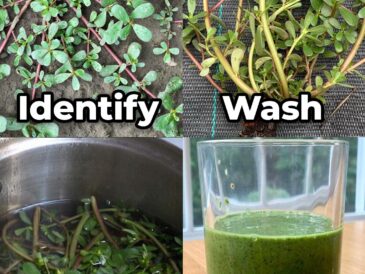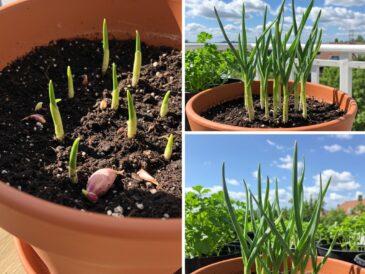Epsom salt, composed of magnesium sulfate, is a natural way to boost plant health. Magnesium is crucial for photosynthesis, and using Epsom salt can result in greener leaves and more vibrant blooms. Dissolve Epsom salt in water and use it to water your plants every few weeks.
11. DIY Drip Irrigation System
A DIY drip irrigation system can save water and ensure your plants receive consistent moisture. Use a plastic bottle with small holes poked in the cap, bury it near the plant roots, and fill it with water. This slow-release system keeps the soil evenly moist.
12. Eggshells for Calcium-Rich Soil
Eggshells are an excellent source of calcium, which is vital for plant cell structure. Crush eggshells and mix them into the soil or use them as a top dressing. Over time, they break down and release calcium, preventing blossom end rot in plants like tomatoes.
13. Vinegar as a Natural Weed Killer
Vinegar is an effective, natural weed killer due to its acetic acid content. Spray undiluted vinegar directly onto weeds on a sunny day. The acid will dry out the weeds, killing them without harming the surrounding soil.
14. Cinnamon to Prevent Fungus
Cinnamon has antifungal properties that can prevent damping-off disease in seedlings. Sprinkle cinnamon on the soil surface when planting seeds to protect them from fungal infections and promote healthy growth.
15. Baking Soda for Sweeter Tomatoes
Baking soda can reduce soil acidity, resulting in sweeter tomatoes. Sprinkle a small amount of baking soda around the base of your tomato plants. This hack is particularly effective in areas with acidic soil, helping to balance pH levels.
16. Garlic Spray for Pest Control
Garlic spray is a natural pest deterrent that repels insects like aphids and caterpillars. Blend garlic cloves with water, strain the mixture, and spray it on your plants. The strong scent keeps pests at bay without harming beneficial insects.
17. Fish Emulsion for Nutrient Boost
Fish emulsion is a potent organic fertilizer made from decomposed fish. It’s rich in nitrogen, phosphorus, and potassium, essential for plant growth. Dilute fish emulsion with water and use it to feed your plants every few weeks for a nutrient boost.
18. Aloe Vera as a Natural Rooting Hormone
Aloe vera gel can be used as a natural rooting hormone to encourage root development in cuttings. Dip the cut end of a cutting into aloe vera gel before planting it in soil. The gel’s natural enzymes promote root growth and protect against pathogens.
19. Use of Seaweed Extract for Plant Growth
Seaweed extract is a natural growth stimulant that provides plants with essential micronutrients. It enhances root development, improves stress tolerance, and boosts overall plant health. Dilute seaweed extract with water and apply it as a foliar spray or soil drench.
20. Rainwater Harvesting for Sustainable Gardening
Collecting rainwater is an eco-friendly way to water your garden. Set up a rain barrel to capture runoff from your roof. Rainwater is free of chemicals found in tap water, making it ideal for plants. Use it to water your garden during dry spells, reducing your water bill and conserving resources.
Conclusion: Maximizing Your Garden’s Potential
By incorporating these garden hacks into your routine, you can maximize your garden’s potential with minimal effort and cost. These tips not only improve plant health and yield but also promote sustainable gardening practices. Whether you’re looking to boost growth, control pests, or enrich your soil, these hacks offer practical solutions that benefit both your garden and the environment. Embrace these innovative techniques and watch your garden thrive.




